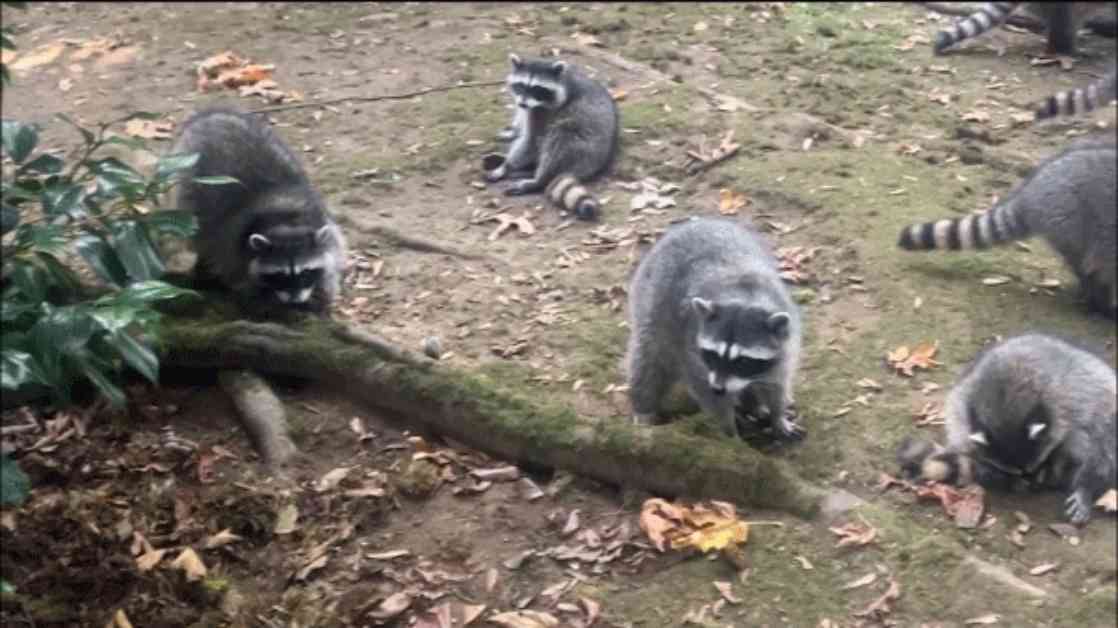A woman in Washington state found herself with an unexpected situation when more than 100 raccoons took over her yard. The Kitsap County Sheriff’s Office received a call from the woman in Poulsbo, Washington, reporting the invasion of critters. She had been feeding raccoons around her home for 38 years, but the number increased drastically to over 100 in the past six weeks.
According to Kevin McCarty, a public information officer for the Kitsap County Sheriff’s Office, the woman shared that the raccoons had become a nuisance, scratching around her house and bothering her at all hours of the night until she fed them. Although she did not report any property damage, the woman expressed feeling overwhelmed by the large number of raccoons.
McCarty emphasized the importance of not feeding wildlife, as it can be harmful to the animals and lead to the spread of diseases among them. He also highlighted that raccoons, despite appearing cute, are wild animals that can exhibit aggressive behavior. Therefore, it is best to give them space and allow them to find food and shelter in their natural habitat.
The woman was referred to the Washington State Department of Fish and Wildlife for assistance in addressing the raccoon invasion. The department’s WILDCOMM Communications Center received the report and connected the resident with wildlife control operators in her area. While a trapper was working with the woman, no wildlife conflict specialists or enforcement officers were dispatched to the scene.
Bridget Mire, a Coastal Region Communications Specialist, reiterated the importance of not feeding wildlife to prevent them from losing their natural fear of humans and exhibiting aggressive tendencies. She also warned about the potential health risks associated with interacting with wildlife, such as diseases that can be transmitted to people and pets.
In conclusion, the incident involving the woman’s yard being overrun by raccoons serves as a reminder of the consequences of feeding wildlife and the importance of allowing animals to thrive in their natural environment without human interference. It is essential to seek guidance from wildlife experts and follow proper protocols to ensure the well-being of both animals and humans in such situations.





















